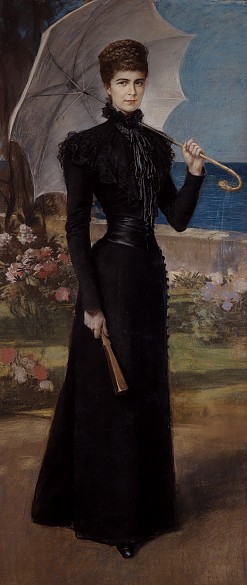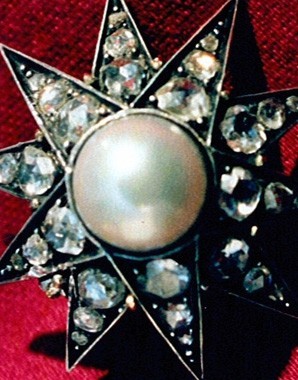The Achilleion on Corfu – Elisabeth’s flight into antiquity
Elisabeth herself claimed that her soul was already in Greece when her body followed on behind by ship. She enthusiastically and bluntly told her husband that she planned to emigrate there.
When Elisabeth, the emperor’s wife and indeed Empress of Austria, relocated to Greece, permanently turning her back on her consort and the Monarchy, this not surprisingly met with scant approval from Franz Joseph. But Elisabeth had decided in future to lead a life ‘devoted only to quiet contemplation’. The ‘screaming Greek’, the ‘hunchback’, the ‘perfumed one’ and ‘stumpy pins’, as the emperor scornfully referred to his wife’s Greek teacher, prepared her for her new life through intensive studies of Greek language and culture. As a result of the fascinating excavations and publications of eminent German archaeologist Heinrich Schliemann, famous for his discovery of Troy, an interest in Greek antiquity became fashionable in the 1870s and 1880s, and this also triggered Elisabeth’s enthusiasm for the ancient world.
And so Elisabeth had a palatial villa erected on Corfu – an immense financial burden on the emperor’s private purse. Archaeological finds served as models for the architects. The furniture was modelled on specimens from antiquity in the style of Pompeii, and turned out to be extremely uncomfortable. Only the rooms planned for Franz Joseph were furnished with modern furniture. However, the emperor never visited his wife in Corfu. A monument to Achilles, Elisabeth’s favourite hero of Greek mythology, and after whom the villa was named, was erected in front of the building. Other busts showed poets and philosophers revered by Elisabeth, including Homer, Shakespeare and Heine.
Scarcely had the Achilleion been completed than the empress, disenchanted, remarked: ‘Our dreams are always lovelier when we do not realize them.’ And so, six years after completion of the construction work, she abandoned Corfu. She urged that the villa be sold, but Franz Joseph refused to part with it. Following her death, the estate passed to her daughter Gisela, who sold it to the German Emperor Wilhelm II. Thereafter, the building went through a variety of different uses, serving as a diplomatic centre under Wilhelm II, barracks in the First World War, seat of the German occupying forces in the Second World War before becoming a casino. Today, as a museum, the Achilleion is once more dedicated to the memory of Elisabeth.














